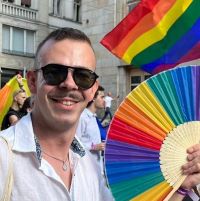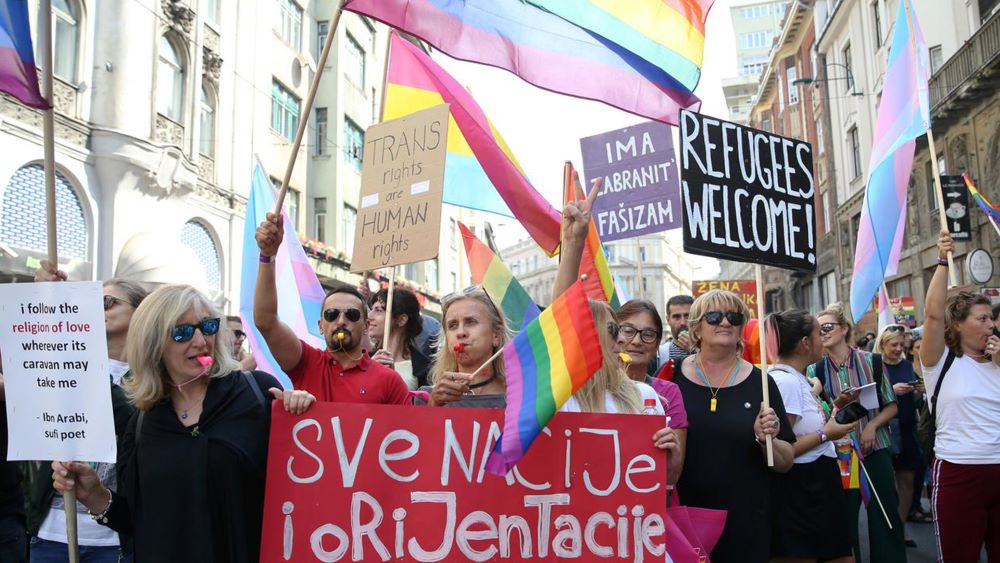We will need Pride for as long as political parties, those in power, and the governments we elect keep obstructing and prohibiting a protest march for rights of the marginalized.

Matej Vrebac
My first pride parade took place in Montenegro in 2016. Although I will never forget that beautiful day in Podgorica basked in warm sunlight, another procession has stayed imprinted in my heart and in my memory in a different way. I am, of course, referring to the first and historic BH pride parade that took place on an equally warm September day in Sarajevo in 2019.
The first parade in Bosnia and Herzegovina happened without any incidents and violence, unlike the first regional ones in Belgrade and Zagreb two decades ago, but none so far have passed without counter-protests and regular outpours of hypocrisy by (homo/bi/trans) haters and radicals; gatherings of all those who are against life with equal rights and oppose equal opportunities for all citizens. I think that is indicator enough of why protests like the Parade exist in our societies and why they are as important as they are. The evening before or after the parade in Podgorica, someone threw tear gas into the bar where there was a party for LGBTIQ people. No one was hurt, the party continued as a sign of resistance, but this situation perfectly outlines the atmosphere of violence that protests like the Parade are shining light on. Equally, there have been verbal attacks and same-sex couples on the streets in Bosnia and Herzegovina were spat on before the announcement of the first BH pride parade; the amount of violence that takes place in homes, schools, workplaces and other institutions often remains under the radar, unnoticed.
This year the streets of Sarajevo once again hosted the BH pride parade, and many fellow citizens were indignant, wondering why there were so many street closures and changes in the traffic regime. It’s got to be some sort of homophobia because we never see that much public outrage at street closures during film festivals, football derbies, or any other major event.
In practice, very few things have changed for the better since the first BH parade in Sarajevo in 2019 except for the fact that LGBTIQ+ people and our allies shed light on unequal treatment and that we are here to demand equal access. The need for a parade in Bosnia and Herzegovina will exist until a set of laws is adopted and implemented regulating same-sex relationships and many other issues concerning the status of trans and intersex people. There will be need for a parade as long as there are those who ask “Why are they doing this, why are they walking, what is it that they don’t have?” We will need Pride for as long as political parties, those in power, and the governments we elect keep obstructing and prohibiting a protest march for rights of the marginalized. I have no doubt that many activists from the region will walk in support at Europride in Belgrade in September precisely for these reasons, because the recent attacks by hooligans on the streets of Belgrade, hate speech, and attempts at bans, have crossed all limits.
Many are yet to understand that every march is a demonstration of resistance to those who systematically oppress every group whose rights are threatened, from workers to people living with disabilities, and not just the queer community.
I don’t know how much time will have to pass until many of these issues are resolved, but the streets belong to everyone equally, just like dogs keep barking and Parades pass.
Matej Vrebac, literary critic and translator



Leave A Comment